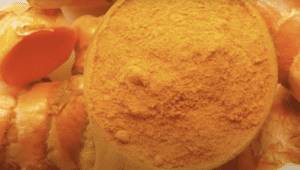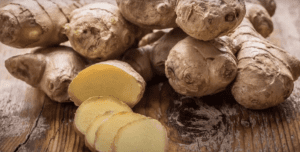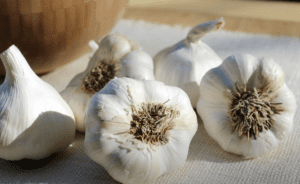Arthritis is the swelling and tenderness of one or more joints. The main symptoms of arthritis are joint pain and stiffness, which typically worsen with age. The most common types of arthritis are osteoarthritis and rheumatoid arthritis.
Symptoms Of Arthritis
The most common signs and symptoms of arthritis involve the joints. Depending on the type of arthritis, signs and symptoms may include:
- Pain
- Stiffness
- Swelling
- Decreased range of motion
- Redness
Rheumatic Arthritis, also known as arthritis, is a condition characterized by joint inflammation. The primary symptoms include pain and stiffness. Typically, arthritis is associated with aging, most commonly affecting individuals aged 50 and above. Arthritis can be broadly classified into two types: degenerative and infective. Both types pose challenges in terms of management.
Degeneration is a natural process that occurs in the body. However, it can be slowed down by addressing lifestyle factors. Sedentary habits and excessive weight can put strain on the joints, particularly weight-bearing joints like the knees, hips, and ankles, leading to faster degeneration. Injuries and improper joint handling can also contribute to the development of arthritis.
Remedies For Arthritis
-
Ayurvedic methods:
Long-term remedies for arthritis involve comprehensive treatment approaches that aim to digest toxins (Ama) and reduce Vata. This gradual method includes a series of authentic Ayurvedic treatments to improve digestion, prevent the production of toxins, and achieve long-term results.
-
Fasting:
Fasting, either complete or partial, is highly beneficial for enhancing the digestion of toxins.
-
Light exercises:
Taking part in fitting activities that suit individual capacities supplements the everyday Ayurvedic medicines.
-
Fruit juices rich in Vitamin C:
Consuming fruit juices high in Vitamin C helps improve the effectiveness of Ayurvedic anti-arthritis treatments and reduces skeletal pain.
-
Guggal (Commiphora wightii):
This spice is exceptionally compelling in treating joint pain. The prescribed dose goes from one to three grams, required two times per day with warm water after dinners. Nonetheless, it is essential to take note of that Guggal isn’t appropriate for people with kidney infections or sensitivities.
Ayurvedic Diet

The recommended diet for those living with RA is similar to the diet recommended for the Ayurvedic condition known as amavata. Amavata refers to a disease of the joints and causes similar symptoms to RA.
For amavata, Ayurveda recommends a diet that balances vata.
Examples of foods to eat on this diet include:
- grains that are easy to digest, like cooked oats, rice, and cream of wheat
- legumes, such as lentils, dal, mung beans, miso, and tofu
- lukewarm water, or water boiled with ginger root, to help with digestion and remove toxins
- green, leafy vegetables
- berries
- buttermilk
- wild animal meat
- aged wine in moderate amounts
Food Sources To Avoid
- salt
- hard-to-digest fruits and vegetables
- sour and fermented foods, like hard cheeses and alcohol
- heating spices, like chili powder
Other Ayurvedic Practices That May Help Your RA Symptoms
- herbal pastes
- castor oil
- cold compress
- specialized oil therapy
- purification rituals
- herbs supplements
Anti-inflammatory Foods For Arthritis Patients
-
Turmeric

One of the main components of turmeric is curcumin. So, try to include turmeric in your diet by having it with milk or adding a pinch of it in the gravies and rice.
-
Ginger

The doctor’s recommended consumption of ginger is 5 grams by having it three times per day helps improve digestion .
-
Garlic

Garlic is a common ingredient in many Ayurvedic drugs, particularly drugs that treat arthritis and considerably reduce its symptoms. Garlic is particularly efficient in reducing arthritic pain. According to specialists, it can assist prostaglandins in controlling inflammation and associated pain.
Conclusion
Ayurveda offers a comprehensive way to deal with overseeing joint pain, focusing on mitigating side effects, working on personal satisfaction, and advancing in general prosperity. While Ayurveda doesn’t guarantee a total solution for joint inflammation, its accentuation on customized treatment plans, home grown cures, dietary changes, way of life changes, and psyche body practices can essentially help joint inflammation patients.
Key parts of Ayurvedic joint inflammation the executives incorporate the utilization of calming spices like turmeric, ashwagandha, and boswellia; dietary suggestions to lessen aggravation and backing joint wellbeing; way of life adjustments like customary activity, stress the board, and satisfactory rest; and remedial intercessions like Panchakarma and home grown definitions for relief from discomfort and further developed versatility.
Frequently Asked Questions

-
Can Ayurveda cure arthritis completely?
Ayurveda focuses on managing arthritis symptoms, improving quality of life, and slowing disease progression rather than promising a complete cure.
-
Which Ayurvedic spices are ordinarily utilized for joint pain?
Turmeric (Curcumin), Ashwagandha, Boswellia, Guggul, and Triphala are regularly involved Ayurvedic spices for joint pain because of their mitigating properties.
-
Does Ayurveda suggest dietary changes for joint pain?
Indeed, Ayurveda underlines a mitigating diet wealthy in natural products, vegetables, entire grains, solid fats, and spices/flavors like ginger and garlic while keeping away from handled food varieties, overabundance sugars, and immersed fats.
-
Are lifestyle modifications part of Ayurvedic arthritis treatment?
Yes, Ayurveda emphasizes lifestyle modifications such as regular exercise (including yoga and gentle stretching), stress management techniques (like meditation), adequate rest, and maintaining a balanced routine.
-
Is Panchakarma treatment suggested for joint pain?
Panchakarma, a detoxification and restoration treatment in Ayurveda, might be prescribed at times of joint pain to take out poisons (ama) and reestablish harmony in the body.
-
Can Ayurveda help reduce arthritis pain?
Yes, Ayurvedic treatments such as herbal formulations, external applications (like herbal oils), and therapies like Abhyanga (oil massage) can help reduce arthritis-related pain and inflammation.
-
What doshas are associated with different types of arthritis in Ayurveda?
Vata dosha imbalance is often associated with osteoarthritis and rheumatoid arthritis in Ayurveda, while Pitta dosha imbalance may contribute to inflammatory arthritis conditions.
-
Are there any Ayurvedic remedies for managing rheumatoid arthritis?
Ayurvedic remedies for rheumatoid arthritis may include herbal formulations like Ashwagandha capsules, Triphala powder, and Guggul supplements, along with lifestyle and dietary modifications.
-
Can Ayurveda be used alongside conventional arthritis medications?
Yes, Ayurveda can complement conventional arthritis treatments. However, it’s crucial to consult with healthcare professionals and coordinate care to ensure safety and effectiveness.
-
Does Ayurveda suggest explicit activities for joint inflammation patients?
Indeed, Ayurveda suggests delicate activities that further develop adaptability, reinforce muscles, and advance joint portability, like yoga, Jujitsu, and strolling. Fitting activities to individual necessities and limitations is fundamental.
Recommended blog : https://yogayurvedaa.com/garlic-uses-and-health-benefits/
